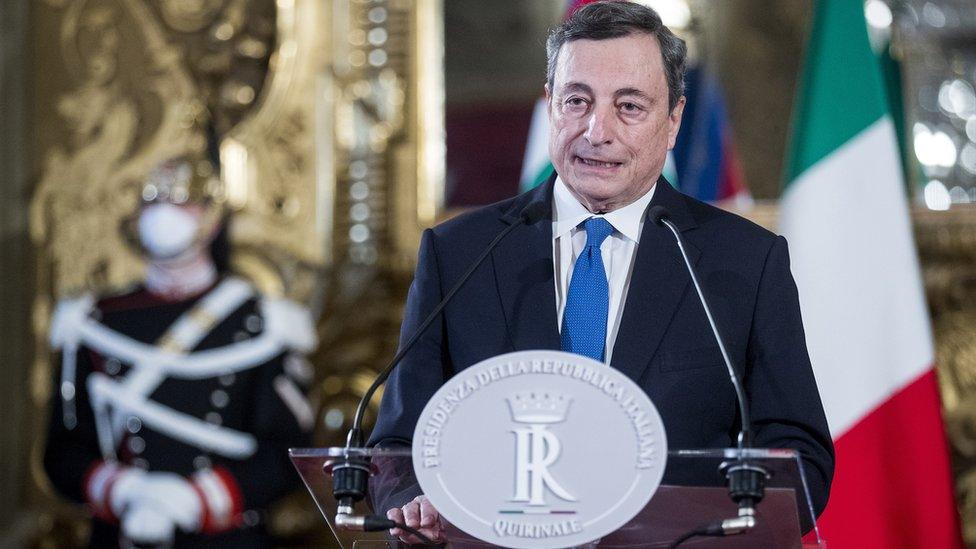Italian PM Mario Draghi fails in bid to revive government
- Published
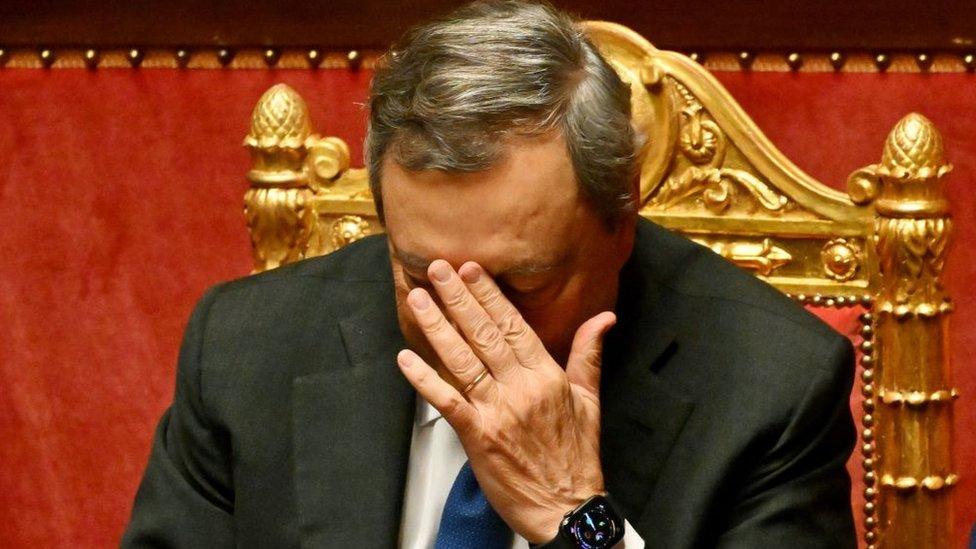
Mario Draghi has been prime minister for 18 months but is now expected to resign
When Prime Minister Mario Draghi announced that Italians had persuaded him not to resign, for much of Wednesday it looked as if his national unity government would survive.
He called for a new pact and a vote of confidence in the Senate.
But hours later three parties in the coalition said they would not take part in the vote.
Now, after a year and a half, his broad-based government encompassing right and left is set to collapse.
After what the leader of the centre left called a day of madness, Mr Draghi won the vote but, deprived of the support of three parties, he is now likely to tender his resignation for the second time in a week. However, he is first due to attend Thursday's debate in the lower house of parliament.
Italy's political drama began last Thursday, when the 74-year-old ex-head of the European Central Bank handed his resignation to the president, because the populist Five Star movement had pulled out of a confidence vote on a multi-billion euro aid package for families and businesses.
President Sergio Mattarella rejected his resignation and six days later Mr Draghi told the Senate it was impossible to ignore public calls to stay in the job. He praised the public, unions, universities and industry as well as health workers and the world of sport for their "undeserved" appeals to carry on.
A completely new agreement was "the only way, if we want to stay together", he said, appealing for a strong, cohesive government. "Are the parties and you parliamentarians ready to rebuild this pact?"
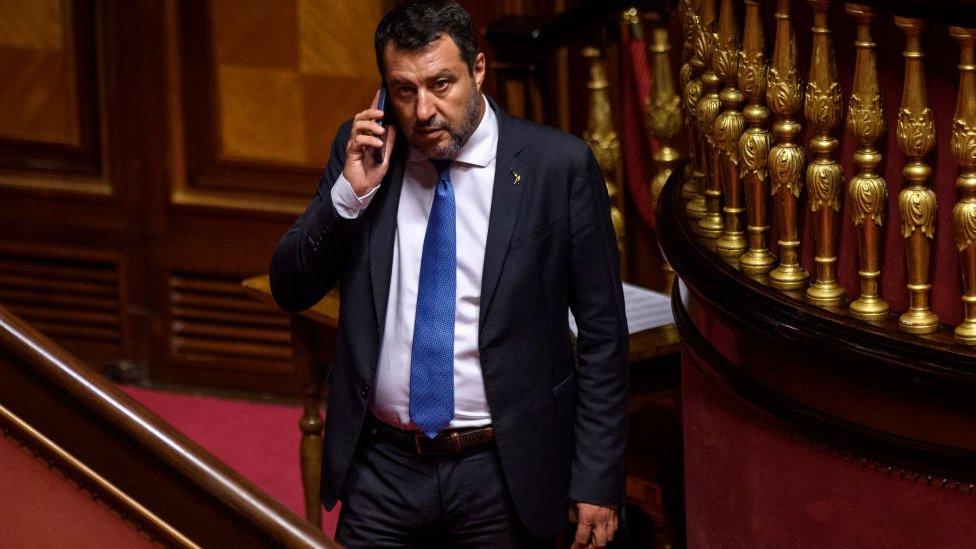
Matteo Salvini's far-right League refused to stay in the same government as the populist Five Star movement
For several hours Italians held their breath, in the belief the political crisis that had engulfed the government of a titan technocrat would be over until elections, due next year.
The centre left gave Mr Draghi its support but all the parties have had one eye on the coming elections.
During a fractious debate in Senate it became clear that the hard-right League and centre-right Forza Italia parties were not prepared to remain in government with the populist Five Star movement that triggered the crisis in the first place. All three refused to take part in the vote.
Five Star's former leader, Luigi di Maio, said it was a "black page" for Italy and politics had failed. Regional Affairs Minister Mariastella Gelmini said she was quitting Forza Italia, accusing the centre-right party of turning its back on Italians and giving in to the far right.
The centre-left Democratic Party said as of now it would prepare for the election campaign.
Mr Draghi was brought in to guide Italy's government through the pandemic, the reforms needed to clinch almost €200bn in EU Covid recovery funds and he has since become a key figure in the international response to the Ukraine war.
After he tendered his resignation last Thursday, several protests took place calling for Mr Draghi to stay in office and polls showed most Italians agree. Some 2,000 mayors, as well as 250 business leaders backed him.
The EU's third-biggest economy now looks set for early elections, delaying much-needed reforms, as well as next year's budget. Italy is the biggest recipient of grants and loans from the EU's Covid recovery fund, but its next instalment is dependent on a list of changes.
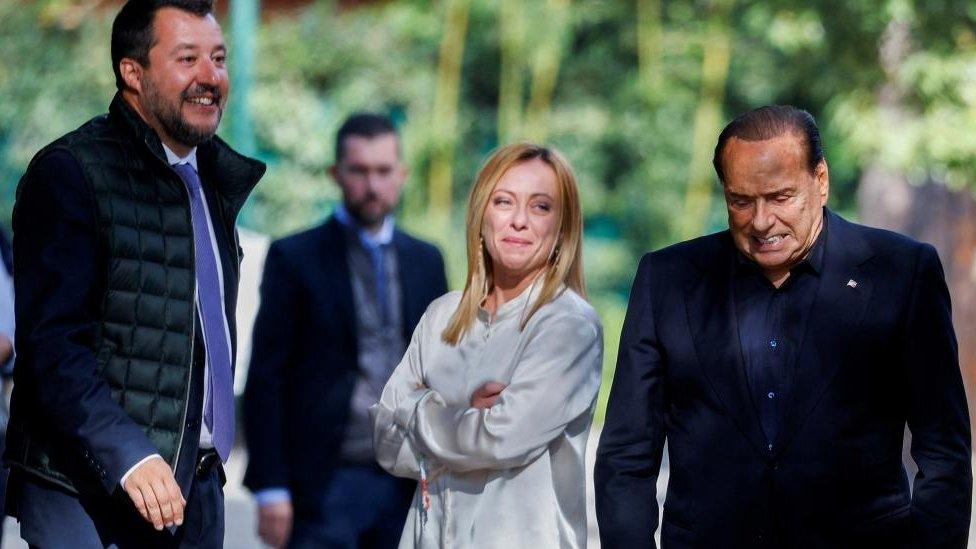
Giorgia Meloni and other leaders on the right have an early election in their sights
Opinion polls suggest Italy's next prime minister would come from the far right. Giorgia Meloni, leader of Brothers of Italy, has already called for an autumn election, highlighting a recent poll that gave her party 23.8% of the vote. "This explains why the left is so scared of elections," she said.
Unlike the rest of the right, Ms Meloni has not been part of the Draghi government, but the League and Forza Italia would be natural partners with her in any future coalition.
Related topics
- Published14 July 2022
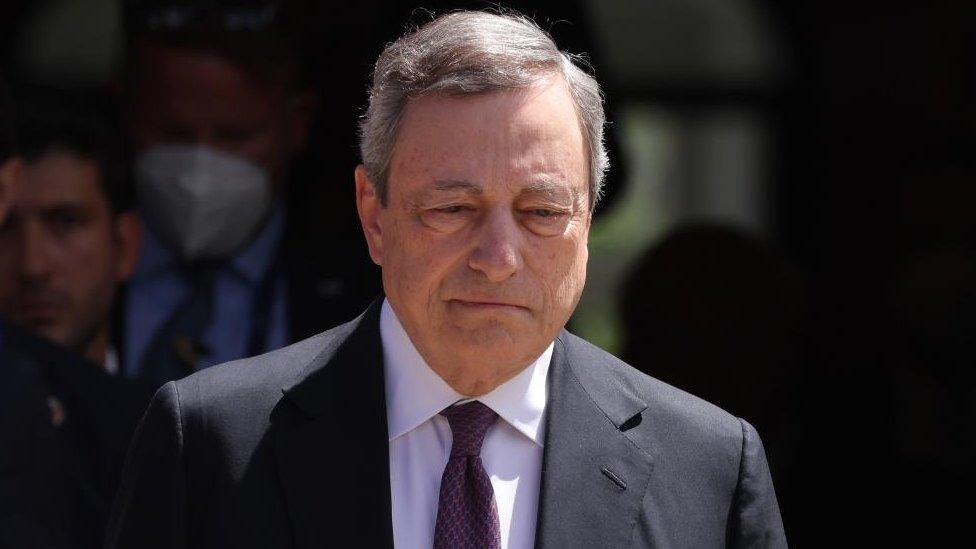
- Published12 February 2021
